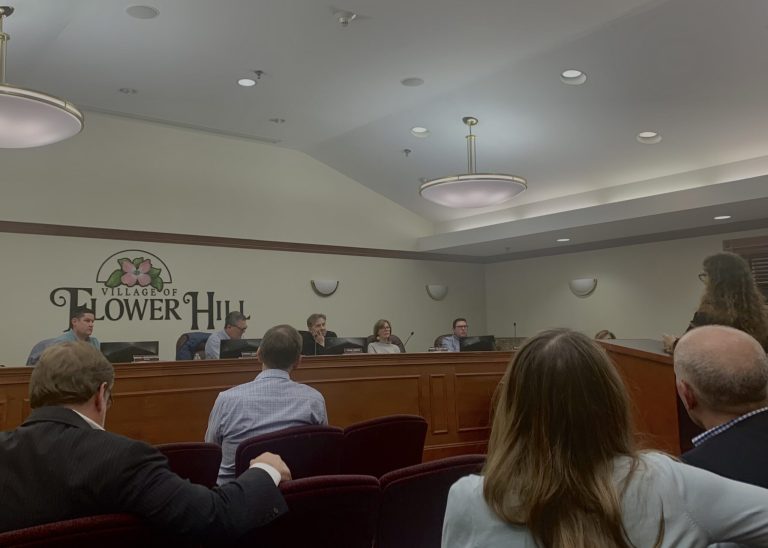
The Village of Flower Hill proposed a tentative budget of $4 million for 2023-2024, a 7% decrease from the current budget.
The village’s Board of Trustees convened during a special meeting Monday evening to present and discuss the proposed budget.
Mayor Randall Rosenbaum said during the meeting that the village is proposing a 1.5% tax increase “to meet all of our expense projections for this year.”
Village Treasurer Suzanne Tangredi said the tax increase is due in part to a rise in the village’s expenses for fire protection. Rosenbaum said the Roslyn Fire Department increased its fire budget by 6% due to a reassessment, and the department opted not to engage in a five-year phase-in, which the village requested. Because of this Rosenbaum said the village is paying the increase immediately.
Overall, the expenses paid by the village for fire protection and services from the Roslyn Fire Department are increasing by 22.41%. The village also pays for the Port Washington Fire Department services, but Rosenbaum said its budget increase was reasonable and will mean a 2.4% increase in expenses for the village.
Real property taxes and tax items revenues are projected to increase, as stated in the village’s documents, to $2 million. This is a 1.5% increase and accounts for half of the village’s budget.
State aid has diminished by 48% for the village, amounting to $601,822. This dollar amount contributes to 15% of the budget.
Tangredi said this decrease in state aid is because the village has received money through the American Rescue Plan Act for the past two years. These are federal grants offered in response to the COVID-19 pandemic, thus not identified as state aid.
More than half of the village’s budget expense categories are declining. This includes a 30% decrease for “staff/clerk cont.” expenses, a 35% drop in “highway” expenses and a 17% reduction in “code enforcement.”
The “staff/clerk cont.” category is decreasing because of one-time expenses for contractual services for software and scanning that the village had previously engaged in, the board explained.
Highway expenses are falling due in part to half the number of seasonal employees.
Rosenbaum said code enforcement is decreasing because the village has a new code enforcer whose hours will be utilized differently than the prior code enforcer’s.
Sanitation accounts for 22.5% of the village’s budget, amounting to $902,000, the highest categorical expense of the village.
The second highest categorical expense for the village is “fire prevention & control” at about $811,000. This accounts for 20.3% of the village’s expenses in the budget.
Expenses for the fire prevention and control category are increasing by 9% compared to the current budget. Excluding this category, the budget would have shrunk by 13%.
Only two other categorical expenses are increasing, including “executive” by 20% at $750 and “judicial” by 3% at $80,694.
Four categorical expenses are staying the same: “legislative,” “finance,” “sanitation” and “transfers to other funds.”
Rosenbaum said during the meeting that the village has spent a lot of time drafting the budget, “forecasting where we expect to be and then analyzing everything to understand what we’d like to do for 23’ and 24’.”
The board will convene again at 7:30 p.m. April 3 for its annual organizational meeting, which will include a budget hearing where the board will consider adopting the proposed budget. The meeting will be held at the village hall but will be live-streamed and can be viewed on their YouTube channel.






